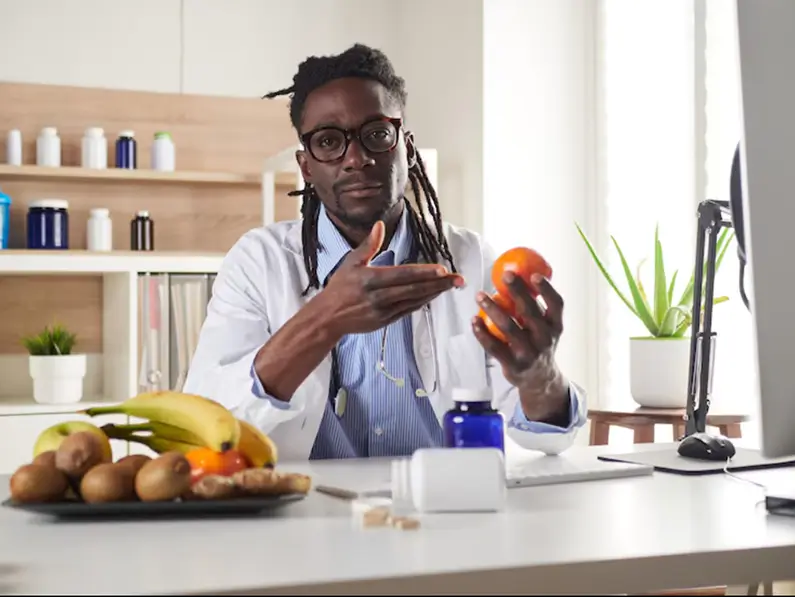Right from the start: incorporating fatty fish, leafy greens, colorful fruits and vegetables, nuts, seeds, and eggs, along with key supplements providing vitamins A, C, and E, zinc, lutein, and zeaxanthin, is proven to boost your vision health. Our eyes thrive on these nutrients, which reduce inflammation, protect against oxidative damage, and ward off age-related decline. In today’s fast-paced world, fueling your body with these foods is as crucial as regular eye check-ups to maintain clear and vibrant vision.
Key Vision-Boosting Foods
Our diet significantly impacts our eye health. Here are some top choices to include in your meal plan:
Fatty Fish: Nature’s Omega-3 Powerhouse
Fatty fish, such as salmon, mackerel, and sardines, are excellent sources of omega-3 fatty acids. These essential fats help reduce inflammation and support retinal health, making them a key component in preventing dry eyes and age-related macular degeneration. Incorporate at least two servings of fatty fish per week to give your eyes the natural lubrication they need.
Leafy Greens: Packed with Lutein & Zeaxanthin
Vegetables like spinach, kale, and collard greens are bursting with lutein and zeaxanthin. These antioxidants act as a natural sunscreen for your eyes by filtering out harmful blue light. Adding a generous serving of leafy greens to your salads or smoothies can help lower the risk of cataracts and other age-related eye conditions.
Colorful Fruits & Vegetables: Vitamins A & C for Your Eyes
A rainbow of fruits and vegetables—including carrots, sweet potatoes, bell peppers, and citrus fruits—brings essential vitamins like A and C to your diet. Vitamin A is crucial for night vision, while vitamin C aids in maintaining the health of the blood vessels in your eyes. A diverse, colorful plate ensures your eyes get the comprehensive nourishment they need.
Nuts, Seeds, & Eggs: Compact Nutrient Boosters
Nuts and seeds, such as almonds, sunflower seeds, and walnuts, provide vitamin E and zinc—both important for preventing cellular damage in the eyes. Eggs round out this group by offering a mix of lutein, zeaxanthin, and other vital nutrients. These foods are easy to add to any meal and work together to build a strong foundation for healthy vision.
The Role of Essential Vitamins and Antioxidants
To truly support eye health, it’s important to understand the specific vitamins and antioxidants that make a difference:
Vitamin A: For Night Vision
Vitamin A supports the production of rhodopsin, a pigment essential for night vision. Deficiencies can lead to impaired vision in low-light conditions, so foods rich in vitamin A (like carrots and sweet potatoes) are a must.
Vitamin C: Keeping Ocular Tissues Healthy
Vitamin C plays a critical role in maintaining the strength of ocular blood vessels and fighting oxidative damage. Citrus fruits, strawberries, and bell peppers not only taste great but also keep your eyes in prime condition.
Vitamin E & Zinc: Defending Against Damage
Vitamin E and zinc work in tandem to protect your eye cells from oxidative stress. This duo helps minimize the risk of age-related diseases and supports overall eye structure. Including nuts, seeds, and eggs in your diet can bolster this natural defense system.
Lutein & Zeaxanthin: Shielding Your Retina
These antioxidants are especially important in our digital age, as they help filter out the excessive blue light emitted by screens. Regular consumption of leafy greens and egg yolks can provide these protective compounds, ensuring a healthy, resilient retina.
Whole Foods vs. Supplements: Finding the Balance
While whole foods should form the cornerstone of your diet, supplements can play a supporting role when dietary intake falls short. Whole foods deliver a complex blend of nutrients that work synergistically, but if you have specific deficiencies or increased nutritional needs, targeted supplements containing vitamins A, C, E, zinc, lutein, and zeaxanthin can help bridge the gap. Always consult a healthcare professional before starting any new supplement routine.
Meal Planning Tips for Eye Health
Integrating these nutrient-packed foods into your daily routine is easier than you might think.
Breakfast Boosters
Start your day with an omelet filled with spinach, tomatoes, and bell peppers, paired with a side of citrus fruits. This meal provides a jump-start with protein, antioxidants, and essential vitamins.
Colorful Lunches & Wholesome Dinners
Create vibrant salads and balanced plates that include lean proteins like grilled salmon, a mix of leafy greens, and whole grains. These meals offer diverse nutrients that keep your eyes sharp and your body energized throughout the day.
Nutritious Snacks for On-the-Go
Keep healthy snacks, such as a small bag of mixed nuts or fresh vegetable sticks with hummus, readily available to maintain steady energy and nutrient levels between meals.
Practical Tips for Incorporating Eye-Healthy Foods
Here are some actionable tips to help you make eye health a priority every day:
- Plan Ahead: Dedicate some time each week to plan meals that incorporate a variety of nutrient-dense, eye-friendly ingredients.
- Shop Smart: Choose fresh, seasonal produce and high-quality protein sources.
- Experiment: Try out new recipes that blend your favorite flavors with nutrient-rich ingredients for a fun and healthy twist.
- Stay Consistent: Even small changes, like adding a handful of spinach to your morning smoothie, can lead to significant long-term benefits for your vision.
Common Myths about Diet and Eye Health
There are many myths surrounding what it takes to maintain healthy eyes. One prevalent misconception is that only expensive supplements can prevent vision problems. In reality, a balanced diet rich in natural, whole foods provides a broader spectrum of benefits than any single supplement. Another myth suggests that you must completely overhaul your eating habits overnight to see improvements. Small, consistent dietary changes can make a big difference over time.
Conclusion
Answering the question “What foods and supplements boost your vision health?” is simple when you know what to focus on. A diet rich in fatty fish, leafy greens, colorful fruits, nuts, and eggs supplies your eyes with the essential nutrients they need. Coupled with strategic supplementation when necessary, this nutritional approach not only supports healthy vision but also enhances overall well-being. Making these small yet impactful changes in your diet today can pave the way for a lifetime of clear, vibrant vision.
FAQ: Your questions answered
Can a healthy diet alone prevent vision problems?
No, but a nutrient-rich diet is fundamental, but regular eye check-ups and a balanced lifestyle are also key to preventing vision issues.
How often should I eat fatty fish for optimal eye health?
Aim for at least two servings of fatty fish per week to obtain sufficient omega-3 fatty acids.
Are there risks with eye health supplements?
Generally, they are safe when used as directed, but overuse can cause issues. It’s always best to consult your doctor before starting any new supplement regimen.
Can these foods improve vision in low light?
Foods high in vitamin A, like carrots and sweet potatoes, support night vision by aiding in rhodopsin production.
How long will it take to see improvements?
Changes in diet may yield gradual benefits over several months, particularly when combined with a holistic approach to eye care.




